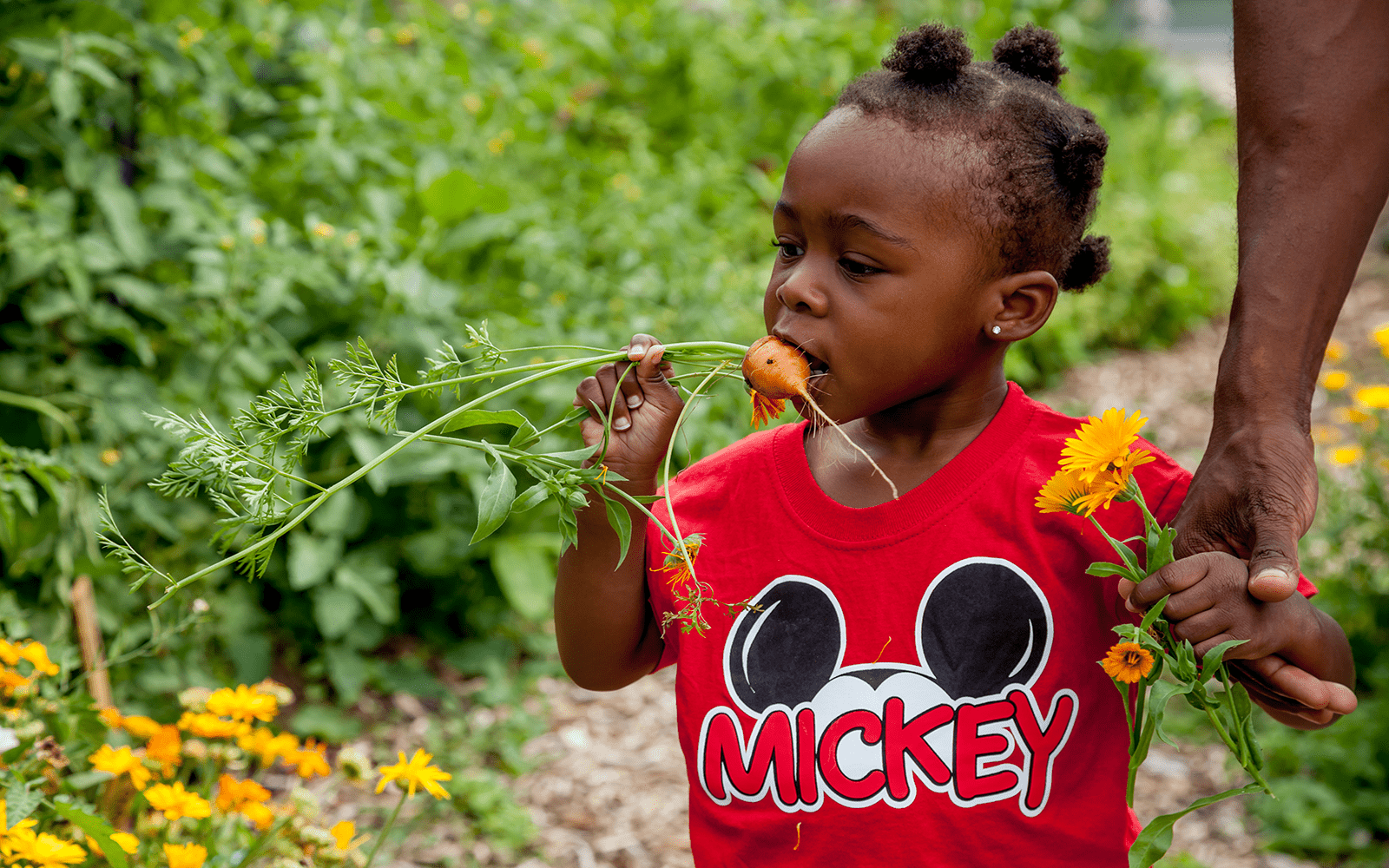Start Early believes that the early years of a child’s development are critical to their ability to thrive in life, and that all children have the right to environments that support their healthy development. The impacts of climate change undermine the development and physical safety of young children and threaten the relationships and environments that shape their earliest years. If those who care for young children are key partners in designing for the future, we can mitigate these effects, while simultaneously strengthening and investing in our early childhood systems and communities.
THE CHALLENGE
As climate change progresses, frequent extreme heat, weather events and humanitarian emergencies will create the kind of toxic stress that impedes family wellness and children’s growth, development, learning and physical and mental health.
For infants, young children and pregnant people, their physical characteristics and particular circumstances make them more susceptible to the health effects of climate change, including illness and disease, injury and premature death and threats to mental health (according to the Centers for Disease Control). That vulnerability is also more severe for groups that have historically been under-served and those who are more vulnerable to heat and severe weather, including frontline and fenceline communities, BIPOC communities, refugees, people with lower incomes, people living with disabilities, and those at the intersections of these groups.
The changing climate will create new demands on both mental health resilience in the face of adverse childhood experiences brought on or worsened by extreme weather and physical infrastructure resilience in the neighborhoods, homes, centers and health care settings where children are cared for.
These challenges – and the need to respond to them – place additional burden on already-overworked and under-resourced caregivers and early childhood systems.
THE OPPORTUNITY
As the impacts of climate change expand and worsen, we must look to the strengths and protective factors offered by our early childhood system to support young children and their families in the context of a changing climate. Start Early is a champion for quality early learning and care, focused on closing the opportunity gap for our youngest learners. It is increasingly clear that we must expand our idea of what it means to care for young children to address the new and increased mental and physical health challenges that many of them are experiencing or will experience in the years ahead.
The challenge of climate change is daunting, but well-resourced, accessible early childhood systems are key in helping young children and their caregivers prepare and adapt.
Early childhood providers, health care providers, home visitors, doulas and others who support families are often the first stop and most trusted resource for young parents seeking information and help. Parents and providers also have valuable expertise on what young children need and how our support systems can help (or hinder) their development. These partnerships and insights will be critical to supporting the safety and resiliency of young children in the years ahead as programs and systems plan for the future.
In order to center the needs of young children and their families in climate adaptation and resiliency planning, Start Early President Diana Rauner is co-chairing the Early Years Climate Action Task Force, a group of cross-sector partners co-convened by Capita and This is Planet Ed (the Aspen Institute). The Task Force is in the process of developing the first-ever U.S. Early Years Climate Action Plan, which will include recommendations for how the country can help young children, birth-to-age 8, flourish in the face of climate change. Be the first to know when we share the final plan this fall.


